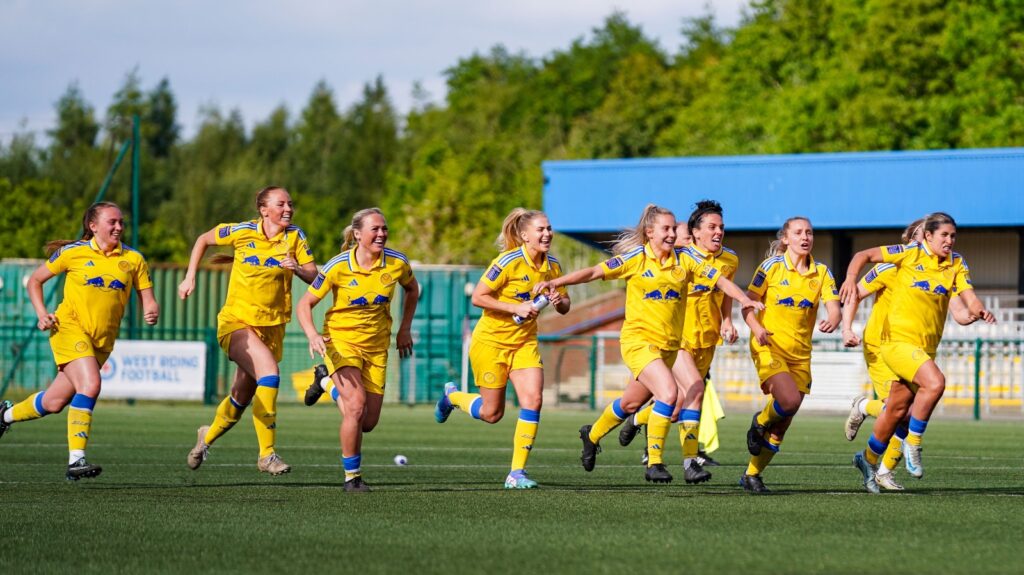
By Trisha Ghosal in Leeds
As a sports journalist, covering cricket across continents often means hopping from stadiums to stories, sometimes in places you least expect. I came to the UK to cover the Indian men’s, women’s, and mixed disability teams—a dream assignment. And with the men’s Test match being played at Headingley, I was stationed in Leeds.
Like most sports lovers, I had always heard about Elland Road—the iconic home of Leeds United Football Club. So, on a lighter workday, camera in hand and curiosity in heart, I decided to take a walk around the legendary ground.
The square outside Elland Road—Bremner Square—was everything I imagined. Statues of club legends, especially the powerful presence of Don Revie, stood tall. The Fed Cup mural brought colour and history to the walls. The achievements of Leeds United’s men’s team were carved proudly in bold letters. Trophies, years, glories.
But something—or someone—was missing.
There was no mention of the women’s team. No mural. No signage. Not even a small plaque. Just silence.
That silence bothered me. So I asked around. And what I unearthed was a story that gripped me—not just as a sports journalist, but as a woman. A story that refused to be ignored. A story about struggle, community, resistance, and undying belief.
A story that had to be told.
Leeds United Women F.C. was born in 1989. While the men’s team had stadiums full of fans and a century-long legacy, the women started with little more than a name and a will to play. No big headlines, no big money. Just heart.
Over time, they made their way up through the divisions, slowly but surely. In 2001, they won the Northern Premier League. They reached the FA Cup finals in 2006 and 2008. They won the Premier League Cup in 2010. These were big achievements. But behind those trophies was a team constantly fighting for space, resources, and respect.
Then came 2017.
The club was in chaos. Poor leadership, lack of support, and total mismanagement meant the women didn’t even have kits to wear or a field to train on. For many teams, this would have been the end. But not for Leeds United Women.
Because when official help failed them, the people stepped in.
A group of fans, volunteers, and believers came together—not with money, but with love. They bought the kits. Booked the grounds. Held meetings. Ran the club. They made sure the players—young and senior—never stopped playing. These weren’t just supporters. They were lifelines.
Eventually, the club caught the attention of Andrea Radrizzani, the new owner of Leeds United men’s team. And in a rare but vital moment of institutional support, the women were brought back under the main club’s umbrella. It was a turning point—but the fight was far from over.
Even today, Leeds United Women F.C. don’t play under the brightest lights. They compete in the FA Women’s National League Division One North. But for a team that once stood on the edge of extinction, every match is a miracle. Every win is a rebellion.
In 2023, they lifted the FA Women’s National League Plate. In 2025, they won the West Riding County Cup. These are not just trophies. They are proof of survival.
And this club has produced stars. Rachel Daly, now a Lioness, once wore the Leeds jersey. So did Gemma Bonner, a leader on and off the field. Their careers began in the very place the world forgot to notice.
And that’s why this story must be told.
Because Leeds United Women F.C. is not just a football team. It’s a symbol of what happens when community beats the system. When love of the game outweighs the weight of being ignored. When women refuse to wait for permission and instead build their own way forward.
Back at Elland Road, the men’s history is rightly celebrated in bronze and banners.
But now, I know the women’s story too. And I will carry it with me.
Because sometimes the most powerful stories aren’t the ones on centre stage.
They’re the ones fighting in the wings, waiting—no, demanding—to be seen.
For latest sports updates: Follow RevSportz



